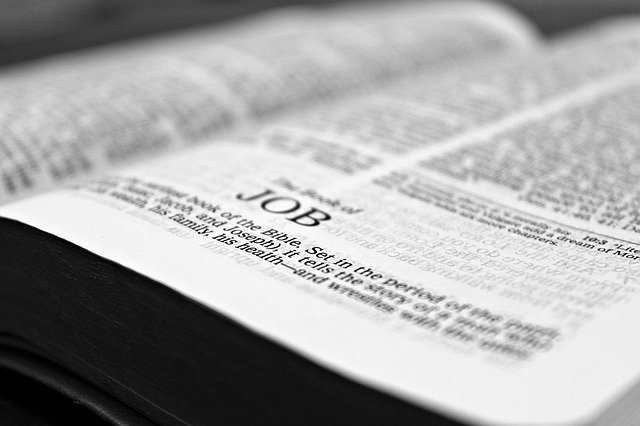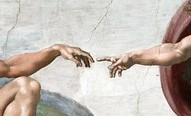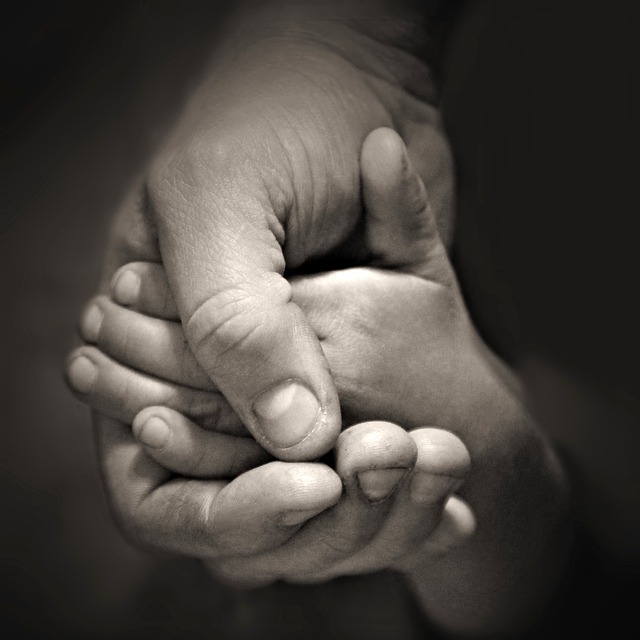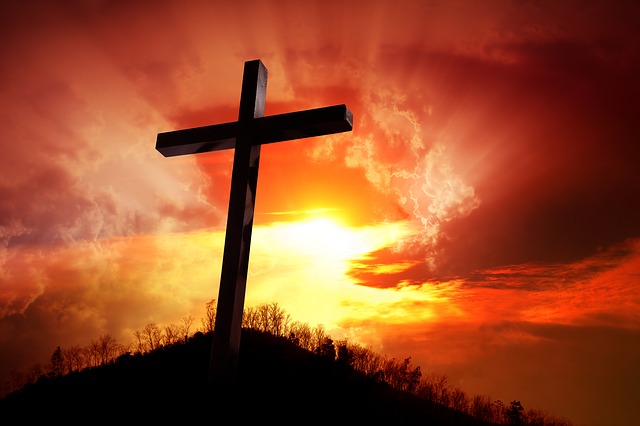 16 And when all Israel saw that the king did not listen to them, the people answered the king, “What portion do we have in David? We have no inheritance in the son of Jesse. To your tents, O Israel! Look now to your own house, David.” So Israel went to their tents…20 And when all Israel heard that Jeroboam had returned, they sent and called him to the assembly and made him king over all Israel. There was none that followed the house of David but the tribe of Judah only. – 1 Kings 12:16 & 20
16 And when all Israel saw that the king did not listen to them, the people answered the king, “What portion do we have in David? We have no inheritance in the son of Jesse. To your tents, O Israel! Look now to your own house, David.” So Israel went to their tents…20 And when all Israel heard that Jeroboam had returned, they sent and called him to the assembly and made him king over all Israel. There was none that followed the house of David but the tribe of Judah only. – 1 Kings 12:16 & 20
A House for God
King David was known as “a man after God’s own heart.” Although he had his weaknesses, David passionately pursued God. This was a welcome trait that stood in stark contrast to King Saul’s propensity towards disobedience; God’s reason for replacing him with David.
One of the desires of David’s heart was to build a house for God. Although God used David to unify the nation of Israel and defeat their enemies, the privilege of building a house for God would belong to David’s son Solomon. Could he handle the responsibility that would come with his privilege?
Early in his reign, God visited Solomon in a dream and tested him by offering to fulfill whatever he might request in prayer. God was pleased when Solomon asked for wisdom to rule His people rather than long life, riches, or the life of his enemies. As a reward for his humility, God promised Solomon not only the wisdom that he asked for, but also the riches and honor he did not request.
And if Solomon would faithfully walk in the ways of the Lord, God promised He would lengthen Solomon’s days.
Solomon’s ultimate test; would wisdom and prosperity result in obedience?
Filled with Glory
When time came to build the house of God, no expenses were spared. As elaborate and impressive as the Temple must have been, perhaps nothing was as emotional for the Israelites as when the ark of the Covenant was brought into the house of God. When the ark, containing the two tablets of the ten commandments, was placed in the inner sanctuary under the shadow of the wings of the cherubim, a cloud filled the house of the Lord. But it wasn’t merely a cloud, it was the presence of the glory of the Lord. Although no house can contain God, His glory was more than enough to fill His new house.
Although the priests were unable to minister in the Temple because of the presence of the cloud, Solomon was able to deliver a beautifully inspired prayer. In his prayer Solomon blessed God, dedicated the Temple, and challenged the people. What a great day to be an Israelite!
61 Let your heart therefore be wholly true to the Lord our God, walking in his statutes and keeping his commandments, as at this day.” 1 Kings 8:60b-61
Like Solomon, the nation of Israel would be tested. Would the House of God and even the presence of the glory of God be enough to inspire long term obedience?
A Heart Divided
Solomon’s forty year reign was characterized by peace and prosperity. He had the respect of kings and queens alike. His wisdom and wealth were unmatched. But despite all of his accomplishments and acclaims, Solomon did not “end well”. When he was old he acted contrary to his own prayer. His heart was not wholly true. Solomon’s many wives turned his heart away from God to worship idols.
4 For when Solomon was old his wives turned away his heart after other gods, and his heart was not wholly true to the Lord his God, as was the heart of David his father… – 1 Kings 11:4
Needless to say, there would be consequences for Solomon’s idolatry. Twice the Lord had visited him and “commanded” him to stay away from the dangers of idolatry. He was not to go after other gods. Yet Solomon broke the Lord’s commands; he wandered from the path of obedience.
Now God warned Solomon that the kingdom would be torn from his son and given to his servant. Because of disobedience, a mighty kingdom would be torn in two.
A House Divided
Upon the death of Solomon, his son Rehoboam was made king. Immediately he was confronted by his servant Jeroboam with a request to make their heavy workload more bearable. Lacking the wisdom of his father Solomon, Rehoboam sought counsel.
First Rehoboam turned to the old men who advised him to lead “as a servant” and speak kindly to his subjects. Then he took counsel with his peers who advised him to threaten his servants and use intimidation. Rehoboam chose the counsel of his peers. Which brings us to today’s text from First Kings Chapter 12.
Angry with the response of Rehoboam, the Northern tribes chose not to recognize Rehoboam as their king, and instead made Jeroboam king over them. The nation of Israel was feeling the long reach of the arm of disobedience. They were far removed from the presence of the glory of the Lord. What a sad day to be an Israelite.
Behold your gods
Wanting to maintain his fragile hold on his people, Jeroboam knew he would have to compete with the House of God located in Jerusalem, the capital of the Southern Kingdom. How long could he retain the loyalty of his people if they were making regular pilgrimages to Jerusalem to worship at the Temple? His solution was to introduce the Northern Kingdom to new gods.
Taking a page out of Aaron’s playbook, Jeroboam made not one but two golden calves. How the heart of God must have grieved when he uttered these blasphemous words, “You have gone up to Jerusalem long enough. Behold your gods, O Israel, who brought you up out of the land of Egypt” (1 Kings 12:28b).
For the “convenience of his subjects”, Jeroboam put one golden calf in Bethel and one in Dan. Now his people could “worship” without going into the jurisdiction of the Southern Kingdom. To make the worship experience more complete, Jeroboam made temples, appointed priests and instituted feasts. On his false altars Jeroboam sacrificed true worship for political power.
Disobedience is a slippery slope. The first step can result in a free fall. Solomon’s idolatry was coming to roost.
Desolation
The nation of Israel would be divided for two hundred years. During this time the divided Kingdoms were often at war. The Northern Kingdom would have twenty two kings, all of which were evil. For two centuries, the people of Israel were yoked to Jeroboam’s golden calves. Idols that made their burdens heavier not lighter.
In time, both of the kingdoms would be carried into captivity. Israel, the Northern Kingdom would be captured by the Assyrians, and Judah, the Southern Kingdom would be captured by the Babylonians. Although delivered in a different context, the Words of Jesus sound like a description of Israel.
“Every kingdom divided against itself is brought to desolation, and every city or house divided against itself will not stand…” – Matthew 12:25b
Behold Your God
We can look at the history of Israel and speculate. What if Solomon had faithfully walked in the ways of the Lord as God challenged him? What if the house was not divided because of Solomon’s disobedience? Sobering thoughts considering the destruction of the Temple and the suffering and trials endured by God’s chosen people.
We can reflect on President Lincoln’s speech when he quoted the Words of Jesus about a house divided. With a heart intent on preserving the Union, Lincoln knew the importance of maintaining unity. As we consider his words we can hear the distant sound of the artillery in the deep seeded divides of our country yet today. How long can we exist as a nation with all of the discourse and divisions that seem to be widening every day?
But at the end of the day, a house divided isn’t about Israel’s past, or our nations future. It is about the condition of our hearts, just as Solomon prayed at the dedication of the House of God. Each of us must look in the mirror and ask: Are our hearts wholly true to the Lord our God? Are we walking in His statutes and keeping His commandments? If not, we need a clearer vision of God. Our God who desires that we faithfully walk in all of his ways. All of our days.
Solomon was right when he said, “…the Lord is God; there is no other.
If only he would have stayed true to Him.
9 Go on up to a high mountain,
O Zion, herald of good news;
lift up your voice with strength,
O Jerusalem, herald of good news;
lift it up, fear not;
say to the cities of Judah,
“Behold your God!” – Isaiah 40:9
10 With my whole heart I seek you;
let me not wander from your commandments! – Psalm 119:10

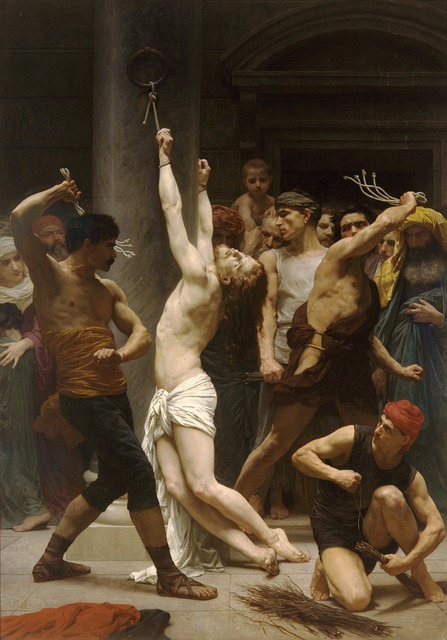 It Is Finished
It Is Finished
